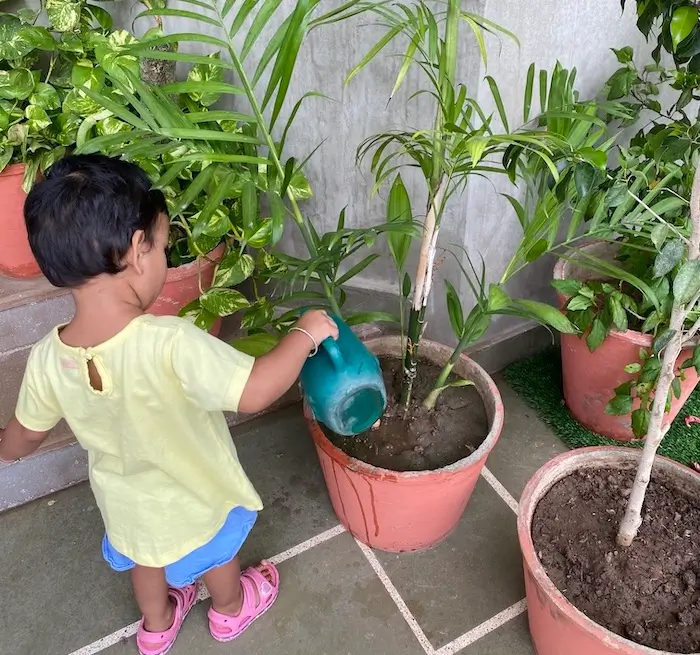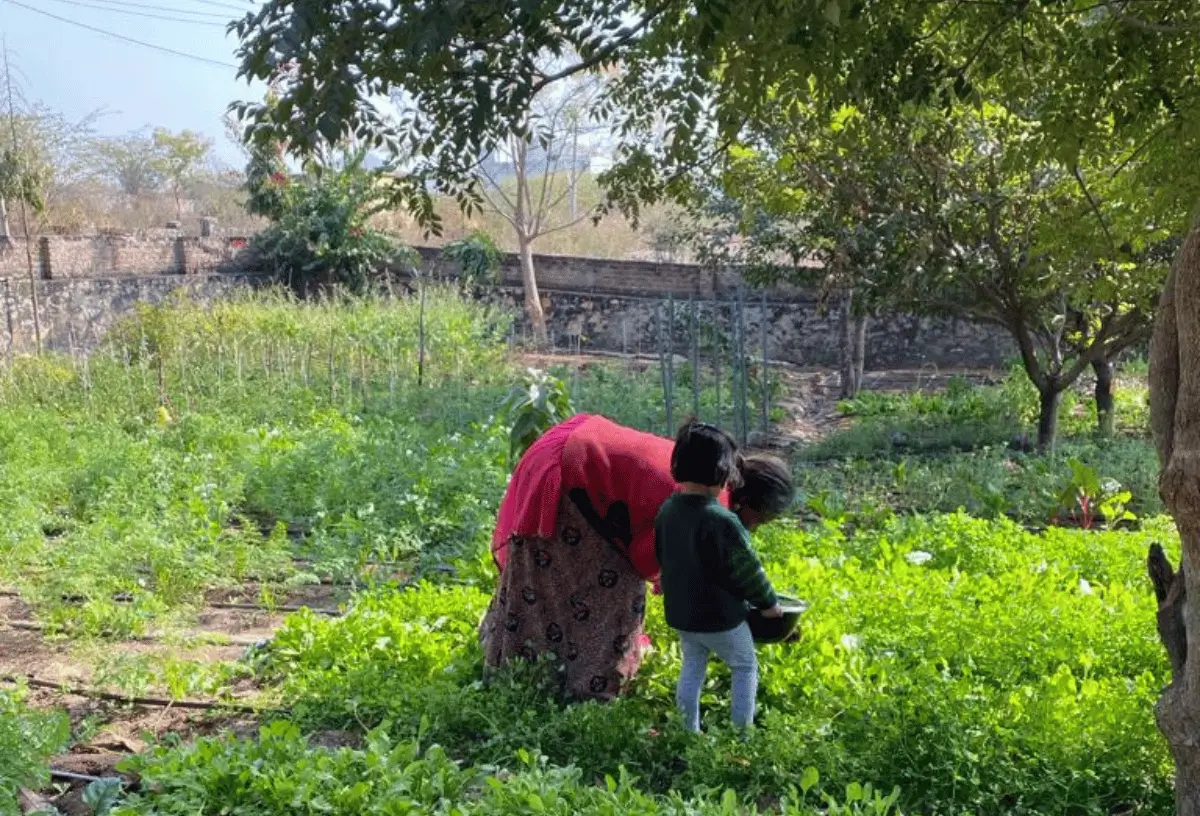This picture holds a special place in my heart.

Sarah was just under 3 here and she was sitting with our farm help, Kamla aunty, and digging up carrots from the ground. She can recognize carrot leaves too and enjoys them when cooked with some potatoes into a bhaji.
Sadly, she is amongst a minority of kids who can do so. Research shows that urban children can recognize more brands and celebrities than plants growing in their own neighbourhood.
What does it really mean?
It reflects a shift in our society, where urbanization and technology have distanced many children from the natural world. It’s not necessarily a negative thing for children to recognize brands or celebrities, as it shows they are engaged with the culture around them. However, when this knowledge comes at the expense of understanding and appreciating the natural world, it does raise some concerns.
Recognizing trees, birds, and other elements of nature in one’s neighbourhood is about more than just knowledge. It’s about connection, a sense of belonging to their environment. They understand that they are part of a larger ecosystem and learn to value and protect it.
How can we change it?
I believe in the power of small acts to create big change. This could be as simple as taking children on nature walks, starting a small balcony garden or indoor plants, or simply showing them local plants and animals.

Having experienced and continuing to see the transformative power of nature for all, I am committed to creating opportunities, not just for my child, but for all to meaningfully experience and engage in nature.
Schools are uniquely positioned to influence and change this trend by incorporating nature-based learning into their curriculum and daily activities. Several studies show that a green school is associated with not just healthier children but also better academic performance.
Should we change it?
Absolutely.
Not only for the sake of our children but for the health of our planet. When we foster a love for nature in our children, we’re investing in the future stewards of our earth.
And that’s a change worth making.

